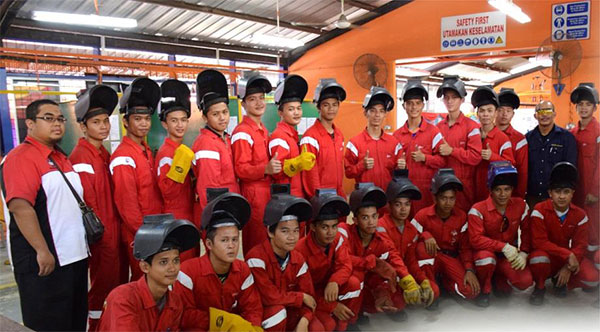Corporations near and far believe that giving back to the community is an important portion of a company’s responsibility as it does business.
Aside from achieving KPIs, generating profits and delivering dividends, companies believe it is utmost important to engage with the local community and provide assistance when needed.
Presenting one such case study: Shell
In light of the government’s call to attract more people into vocational or technical education more than two decades ago, Shell Malaysia formed a partnership with local institute Miri Vocational College back in 1989 to fulfill this demand.
Speaking at a Shell event in Malaysia last year, Datu Len Talif Salleh, the Sarawak Assistant Minister of Promotion of Technical Education said that Malaysia’s youth need to have bigger ambitions and to achieve this, they need to be technically educated.
“There is plenty of hope in the technical world for teenagers who may not be very inclined in the academic sense, and in fact, they usually end up earning more than those with paper qualification,” he added.
This year marks the 26th year of the partnership between Shell Malaysia and Miri Vocational College, which over the years has helped to address the need for highly-skilled welders in Malaysia.
Iain Lo, Shell Malaysia chairman noted that before 1989, most welders employed in the local oil and gas industry were non-Malaysians and the majority were from the neighbouring Asean countries, thus giving a negative impression on the quality of the local vocational school graduates.
Aside from working with the college to identify areas for improvement in the welding curriculum to help ensure employability of the graduates, as well as helping to upgrade the welding workshop with financial and technical assistance, Shell has in recent years worked with its partner to develop ProjekLINK.
ProjekLINK is a fast-track programme to train welders in accordance with the highest industry standards. Through ProjekLINK, Lo said that Miri Vocational College has trained more than 800 coded welders from across the country and expanded the programme to Bintulu, Malaysia.
“Today, Malaysian welders are in high demand,” he added.
Shell plays an active role in supporting the programme by providing both teachers and students with ongoing guidance, motivation and learning materials. In celebration of the 25th anniversary, last year Shell presented the college with a new welding machine worth more than RM110,000.
Seeing the positive outcomes of ProjekLINK, the Malaysian government has also over the years contributed to the programme in a number of ways. Increasing the power supply to the college’s workshop was one such contribution and this made a profound difference to the number of practical hours the students could log during the course.
In 2013, ProjekLINK was extended to Bintulu, a coastal city south of Miri, and as part of the 11th Malaysian Economic Plan, the programme is set for expansion across Malaysia.
Shell will continue to support ProjekLINK by providing training to instructors to ensure they are up-to-date on industry standards, and by continuing to make improvements to the college’s workshop.
Aside from ProjekLINK, Shell has also constantly promoted the development of local capabilities with its Asia Pacific Wells Learning Hub in Miri, Sarawak which had first opened in September 2013 and also, bringing innovation to Wells Training Programme as the first in the region to use advanced simulators.
According to Lo, this learning hub aims to train wells staff in the Asia Pacific region to the highest standards on a regular basis and improve their professional and safety competencies.
Shell invested in setting up the Asia Pacific Wells Training Hub in Miri, with the objective to become the most practical and hands-on well control school available to the industry in the Asia Pacific region.
The school is Shell’s desire to provide quality Wells training which reflects the rapidly changing and growing environment in South East Asia, complimented with the use of the most advanced simulator systems available worldwide.
Shell noted that the simulators are capable of handling actual well data to mimic possible downhole conditions – recreating all types of operational difficulties – to test the candidates and contractors ability to resolve each unique situation and avoid a well blowout in the most realistic settings.
In addition, the trainers can also utilize case histories of blowouts and other well control events to teach prevention and control.
This all part of Shell’s aim to “Better” the well control capabilities of staff, contractors and partners and build a reputation as the “Best” Well control training facility in the Asia Pacific Region.
Overall, Shell sees the training facilities as beneficial to the local community where schools, colleges and universities are invited to observe the simulators working and experience the simulated Wells operations, thereby encouraging young students to consider a future career in Wells.
This case study was taken from here.

